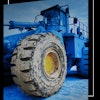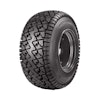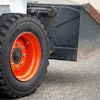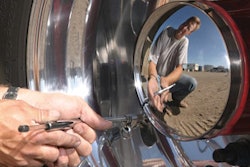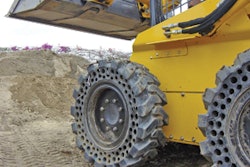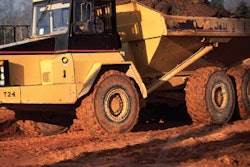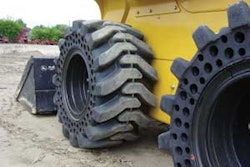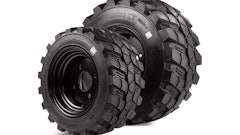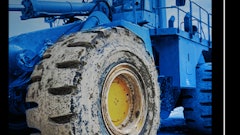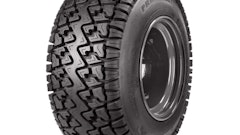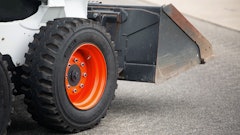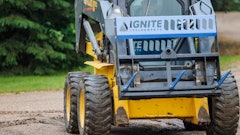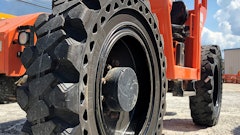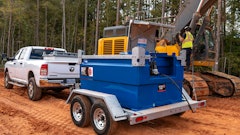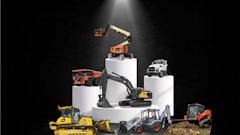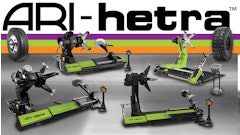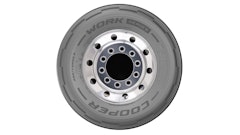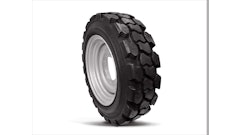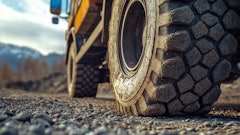On a recent visit to Bridgestone Firestone Off The Road (OTR) Tire Co. in Bloomington, IL, I was reminded of a serious problem facing the construction industry today and that is the shortage of tires. We've all heard over the past couple of years that demand for OTR tires has far outpaced supply, but I was not aware of the many things that consumers can do to alleviate the effects of the shortage on their individual operations.
In a nutshell, if you own construction equipment, you need to do everything you can to make your tires last. As it currently stands, a tire ordered today could take six months or longer to be delivered. A piece of equipment without tires is useless, and for a rental operation, that translates into lost rental revenues. What's the solution? Good tire management.
According to Jack Dutcher, national manager, OTR Training & Development at Bridgestone Firestone OTR Co., one flat tire generally results in four hours of downtime. And that's if you have a replacement tire ready to go. If no spares are available, that piece of equipment goes up on blocks. Rental businesses cannot afford to have pieces of equipment out of commission, so it's important to keep track of every individual tire. You need to know how many hours it's been in operation, the depth of its tread and more to let you know if that tire is safe and productive.
Bridgestone Firestone offers a computer program to help manage the tires in your fleet. It's called TreadStat and it can help you track inspections, repairs, hours and much more. In addition to tracking tire usage and repair, there are some basic things to keep in mind as well. For example, everyone knows air pressure is important to the longevity of tires, but few are as diligent as they should be in checking air pressure and adjusting it according to the season, load and so on. Even a 10-lb. drop in air pressure can cause serious tire damage, and this not only threatens the life your tires, it can also put operators and bystanders at serious risk. Few people are mindful of the fact that tires are pressure vessels and, as such, are explosive devices. The larger the tire and the greater the air pressure, the more risk you take by ignoring the care of your tires. So check your tires' air pressure after every rental.
Knowing the stats of your tires' life is extremely valuable information as the industry faces this current tire shortage. It allows you to make the most out of your tire investment and keep your equipment up and running longer. And while it sounds like a minor and obvious thing to do, taking good care of your tires can prevent a significant amount of downtime while ensuring the safety of customers and employees alike.

